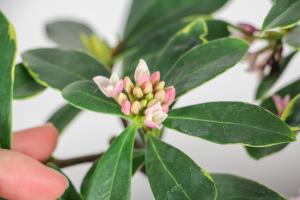Introduction
Forests are essential to the survival of various animal, insect, and plant species. They act as carbon sinks, absorb greenhouse gases, and produce oxygen that we need to breathe. It's a common understanding that forests are natural, and they grow on their own. The phrase "who planted all the trees?" means that if forests are natural, who is responsible for planting them? This can be our starting point to discuss the importance of forests and the role of humans in their growth.
The Role of Humans in Planting Trees
Humans have been planting trees for various reasons – to create a food source, to harness wood, to provide shade, or to fence off land. In more recent times, the focus has shifted towards afforestation – planting trees in large areas, covering vast regions. Governments, non-government organization, and individuals are working to reforest endangered areas, conserve existing forests, and create sustainable environments.
China has launched one of the largest tree plantation campaigns ever seen, with over 220,000 square kilometers of trees planted in over a decade. Similarly, India has launched initiatives to plant close to 66 million trees in a day. These are incredible feats that show that humans are interested in protecting the environment.
The Importance of Forests
Forests are vital not just for the environment but also for the economy. They offer ecosystem services that are worth millions of dollars, from carbon sequestration to water filtration. Forests also offer essential resources such as wood, medicine, and food. Trees produce oxygen and absorb carbon dioxide and other greenhouse gases from the environment. The role that forests play in regulating the climate is underrated, and human efforts towards conservation of forests should be recognized and appreciated.
The Effects of Deforestation
However, the negative effects of deforestation cannot be ignored. Cutting down trees, shrubs, and vegetation in large areas for commercial or agricultural purposes disrupts the ecosystem. It alters the water cycle and changes the soil composition, leading to droughts, floods, and soil erosion. It also impacts the biodiversity of forests, destroying habitats and leading to the extinction of various species.
Humans have destroyed vast tracts of forests in the past, and it is imperative that we take collective action to prevent further deforestation. Initiatives such as sustainable logging, promoting renewable energy sources, and conservation of endangered species are essential steps towards creating a sustainable future for our planet.
Conclusion
While forests are a natural ecological balance, humans undoubtedly play a significant role in planting trees, preserving forests, and conserving the environment. The question "who planted all the trees?" should serve as a reminder of the importance of human action in protecting the environment. Let us take responsibility and work together to create a sustainable ecosystem for future generations.

 how many times do yo...
how many times do yo... how many planted tre...
how many planted tre... how many pine trees ...
how many pine trees ... how many pecan trees...
how many pecan trees... how many plants comp...
how many plants comp... how many plants can ...
how many plants can ... how many plants and ...
how many plants and ... how many pepper plan...
how many pepper plan...





























